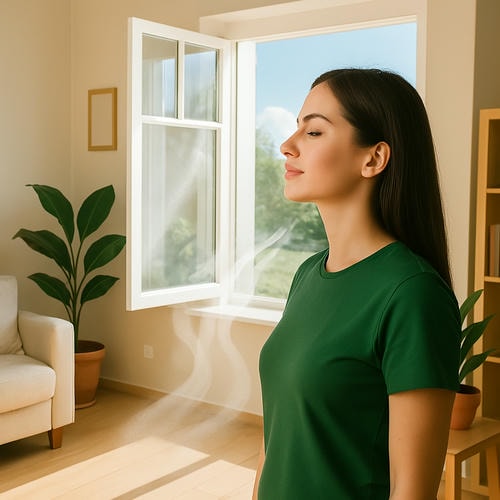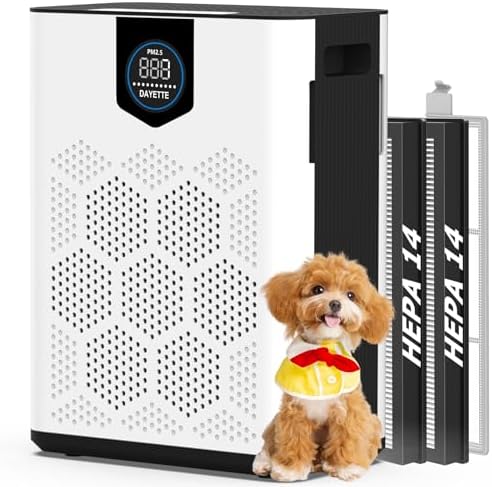Introduction
Clean air is essential for our health and well-being, yet many of us overlook the quality of the air we breathe indoors. Whether at home, work, or school, air pollution and improper humidity levels can affect our respiratory health, sleep quality, and even mood.
In this article, we’ll explore how to achieve clean air, why humidity plays a crucial role, and simple steps to improve air quality in your space.
Why Clean Air Matters
Breathing clean air isn’t just about comfort—it’s about health. Poor air quality can lead to allergies, asthma, headaches, fatigue, and even long-term respiratory issues. Indoor air pollution comes from sources, including:
- Dust and allergens – Pollen, pet dander, and dust mites can trigger allergies.
- Mold and mildew – These thrive in damp environments and can cause respiratory problems.
- Chemical pollutants – Cleaning products, paint, and furniture can release harmful chemicals.
- Outdoor pollution – Car exhaust, industrial emissions, and pollen can enter our homes.
By improving air quality, we reduce the risk of respiratory issues and create a healthier living environment.
How to Achieve Clean Air Indoors
1. Ventilation Is Key
Proper ventilation helps remove stale air and bring in fresh air. Here’s how to improve airflow:
- Open windows daily to let fresh air circulate.
- Use exhaust fans in kitchens and bathrooms to remove moisture and odors.
- Consider an air exchange system if you live in a highly polluted area.
2. Invest in Air Purifiers
Air purifiers help remove pollutants, allergens, and odors. When choosing one, look for:
- HEPA filters – These capture tiny particles like dust, pollen, and pet dander.
- Activated carbon filters – These absorb odors and chemical pollutants.
- UV light purifiers – These kill bacteria and viruses.
- 【𝟐 𝐓𝐈𝐌𝐄𝐒 𝐏𝐔𝐑𝐈𝐅𝐈𝐂𝐀𝐓𝐈𝐎𝐍 𝐒𝐏𝐄𝐄𝐃 & 𝐓𝐔𝐑𝐁𝐎 𝐌𝐎𝐃𝐄 𝐅𝐎𝐑 𝐏𝐄𝐓 𝐎𝐖𝐍𝐄𝐑】Our air purifier stands out with its innovative dual-sided air in…
- 【𝐏𝐑𝐎𝐋𝐎𝐍𝐆 𝐅𝐈𝐋𝐓𝐄𝐑 𝐋𝐈𝐅𝐄 𝐀𝐍𝐃 𝐋𝐎𝐖𝐄𝐑 𝐑𝐄𝐏𝐋𝐀𝐂𝐄𝐌𝐄𝐍𝐓 𝐂𝐎𝐒𝐓𝐒】First Line of Defense: The removable and washable fine-mesh pre-filter …
- 【𝟐 𝐱 𝐀𝐃𝐕𝐀𝐍𝐂𝐄𝐃 𝐇𝟏𝟒 𝐇𝐄𝐏𝐀 𝐅𝐈𝐋𝐓𝐄𝐑】Discover exceptional air quality with our new air purifiers for home, featuring two advanc…
3. Keep Your Home Clean
A clean home equals cleaner air. Simple habits can make a big difference:
- Vacuum carpets and rugs regularly using a HEPA-filter vacuum.
- Dust surfaces with a damp cloth to trap particles instead of spreading them.
- Wash bedding and curtains frequently to remove allergens.
- Keep shoes at the door to prevent outdoor pollutants from entering.
4. Add Indoor Plants
Plants naturally filter air and add oxygen to your space. Some great air-purifying plants include:
- Snake plant – Removes toxins and thrives in low light.
- Spider plant – Absorbs carbon monoxide and formaldehyde.
- Peace lily – Helps reduce mold spores in the air.
5. Control Humidity Levels
Humidity plays a crucial role in air quality. Too much moisture can lead to mold growth, while too little can cause dry skin and respiratory irritation.
Why Humidity Matters
Humidity refers to the amount of moisture in the air. The ideal indoor humidity level is between 40-60%. Here’s why maintaining proper humidity is important:
Effects of High Humidity
Excess moisture can lead to:
- Mold and mildew growth, which can trigger allergies and asthma.
- Increased dust mites, worsening respiratory issues.
- A stuffy, uncomfortable environment.
Effects of Low Humidity
Dry air can cause:
- Dry skin, irritated eyes, and scratchy throat.
- Increased risk of respiratory infections.
- Static electricity buildup.
How to Maintain the Right Humidity
1. Use a Hygrometer
A hygrometer measures humidity levels in your home. If your air feels too dry or damp, check the humidity and adjust accordingly.
2. Use a Humidifier or Dehumidifier
- Humidifiers add moisture to dry air, especially in winter.
- Dehumidifiers remove excess moisture, preventing mold growth.
- Upgraded High Efficienly Dehumidifier: Our dehumidifiers utilize semiconductor condensation technology, equipped with du…
- Sleep Mode: The dehumidifier for home has 2 modes of operation. The high speed mode effectively reduces humidity, thus r…
- Auto Shut-off Protection: The dehumidifier has an intelligent auto shut-off function to prevent water leakage or overflo…
3. Ventilate Properly
- Run exhaust fans in bathrooms and kitchens to reduce moisture buildup.
- Open windows when cooking or showering to let steam escape.
4. Fix Leaks and Insulate
Leaks and poor insulation can lead to excess moisture. Check for:
- Leaky pipes or roofs.
- Condensation on windows.
- Poorly sealed doors and windows.
5. Use Natural Moisture Control
- Place bowls of water near radiators to add moisture in winter.
- Use rock salt or baking soda to absorb excess humidity in damp areas.
Conclusion
Clean air and proper humidity levels are essential for a healthy home. By improving ventilation, using air purifiers, keeping your space clean, and maintaining balanced humidity, you can breathe easier and feel better every day.
Making small changes can lead to big improvements in air quality. Start today, and enjoy the benefits of fresh, clean air in your home!


